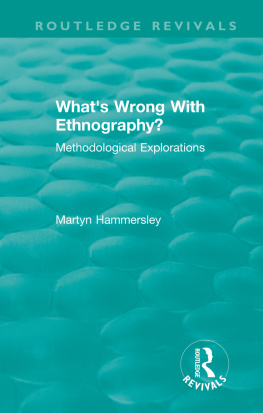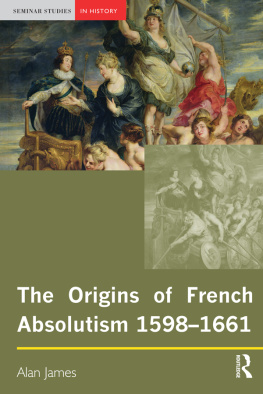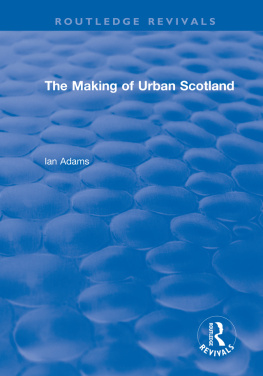Routledge Revivals
The Age of Absolutism
The end of eighteenth century is often regarded as the watershed between the feudal Europe of the Middle Ages and the modern Europe of the nineteenth century and beyond. The chronology covered in this title, first published in 1954, is vast, and yet covers an intellectually stimulating and exciting period of European history. The pinnacle of absolute monarchy is cemented in Louis XIV's France, eventually giving way to reform and revolution; the Russian Empire becomes an important player on the Western stage under Peter I and Catherine the Great; America achieves independence; and, the ideas of the Enlightenment begin to change the academic and religious landscape. Max Beloff analyses the period in fascinating detail in a now reissued title that will be of particular interest to students to Early Modern History, Politics and European diplomacy.
The Age of Absolutism
16601815
Max Beloff
First published in 1954
by Hutchinson University Library
This edition first published in 2014 by Routledge
2 Park Square, Milton Park, Abingdon, Oxon, OX14 4RN
and by Routledge
711 Third Avenue, New York, NY 10017
Routledge is an imprint of the Taylor & Francis Group, an informa business
1954 Max Beloff
All rights reserved. No part of this book may be reprinted or reproduced or utilised in any form or by any electronic, mechanical, or other means, now known or hereafter invented, including photocopying and recording, or in any information storage or retrieval system, without permission in writing from the publishers.
Publishers Note
The publisher has gone to great lengths to ensure the quality of this reprint but points out that some imperfections in the original copies may be apparent.
Disclaimer
The publisher has made every effort to trace copyright holders and welcomes correspondence from those they have been unable to contact.
A Library of Congress record exists under LC control number: 54012579
ISBN 13: 978-0-415-73661-9 (hbk)
ISBN 13: 978-1-315-81836-8 (ebk)
THE AGE OF ABSOLUTISM
16601815
Max Beloff
HUTCHINSON & CO (Publishers) LTD
178202 Great Portland Street, London W1
London Melbourne Sydney
Auckland Johannesburg Cape Town
and agencies throughout the world
First edition 1954
Reprinted 1956, 1958, 1960, 1962, 1964, 1966, 1967, 1971
The paperback edition of this book is sold subject to the condition that it shall not, by way of trade or otherwise, be lent, re-sold, hired out or otherwise circulated without the publisher's prior consent in any form of binding or cover other than that in which it is published and without a similar condition including this condition being imposed on the subsequent purchaser
Cover design of paperback edition by courtesy of The Mansell Collection
Max Beloff 1954
This book has been set in Imprint type, printed in Great Britain on smooth wove paper by Anchor Press, and bound by Wm. Brendon, both of Tiptree, Essex
ISBN 0 09 020271 6 (cased)
0 09 020272 4 (paper)
To
P.D.W.
CONTENTS
The suggestion that I might write an essay on the Age of Absolutism was made to me by Sir Maurice Powicke a number of years ago at a time when I was working on the American Revolution. But for his constant and kindly encouragement, I would long ago have abandoned the attempt, deterred by the difficulty of the theme and the doubts which were bound to arise as to the method of treatment. What follows is by no means to be thought of as a compendium of eighteenth-century European history. I have tried instead to emphasise some elements in the society and politics of the period which appear to be of most consequence from the point of view of those whose interest in history is the pragmatic one of trying to understand their own times. To look at a political system from the point of view of the revolution which brought it to an end may seem needlessly perverse: in the space allotted to me, it has certainly meant omitting much which a full portrait of the age would demand. I can only hope that the starkness of outline which such selectivity imposes will help to reveal in their due importance certain aspects of the period which a fuller and more conventional treatment might fail sufficiently to emphasise. I am deeply indebted to Mr John Bromley, Fellow of Keble College, for his constructive reading of the proofs. I am also grateful to Miss Molly Rubin of St Hildas College for assistance with the index.
M.B.
Oxford
THE AGE DEFINED
The choice of an historical period as the subject of a book is itself an intellectual commitment, since the notion of period is arbitrarily imposed upon a continuous development. But it is one of the choices that have to be made, if history is to be intelligible. The problem has often been avoided by recourse to the habit of thinking in centuriesa habit that comes naturally to people brought up on a decimal system of numerals. So pervasive is this tendency that some historians have written as though the centuries themselves were the subject of their inquiry, and have attempted to define an eighteenth century or nineteenth century attitude or style. The phrase fin de sicle meaning decadent is used about writers of the 1890s in oblivion of the fact that the 1790s were for a whole generation of poets an era of rebirth and renewal, when to be young was very heaven.
Equally dangerous are terms that carry in themselves the description of an age and are so broad and general that no precise chronological limits can reasonably be assigned to them. Anyone who is aware of the prolonged and sometimes acrimonious discussions as to when the Renaissance took place or as to what centuries fall within the Dark Ages, can see into what purely verbal entanglements one is ensnared.
The period 16601815 designated here as the Age of Absolutism can easily be assailed as providing a framework that helps to conceal as many important lines of demarcation as it suggests. And there is much truth in this argument.
The historian whose main interests lie in economic life would point out, for instance, that the first half of the eighteenth century saw little change in the techniques of production or in the economic relations resulting from them. In the latter half of the century, however, there took place the first of those major changes that are usually classed together as the industrial revolution, so that at the end of our period the railway age with all that the phrase implies is almost upon us. The new science of the demographers has noted that it is at some point within the period probably about 1750 that there begins a considerable acceleration in the rate at which the population of Europe increased, after long centuries of relative stability. We may roughly estimate they tell us, the population of Europe in 1700 as 118,500,000, in 1750 as 140,000,000 and in 1800 as 187,000,000. And they are no doubt right in asserting that such a change of which the causes are still obscure, had profound intellectual as well as social effects, so that the middle of the eighteenth century becomes the real turning point.
Yet to those who argue in this way, it is possible to answer that the change in the economic structure and in mortality rates rested on technical developments that were themselves the product of major theoretical advances in the natural sciences, and that these were on their way to being accomplished in the middle of the seventeenth century. This scientific revolution that we may try to locate within the familiar history of this island by thinking of the discussions leading to the formation of the Royal Society as taking place during the turmoil of our own Interregnum in the 1650s, increasingly appears to historians as of at least equal importance with the revival of classical studies in Italy two centuries earlier. Nor of course was the development in technique, in the control and utilisation by man of natural resources, the only result of this scientific revolution. This was one of the ways in which it reacted upon the problems of society and government.













